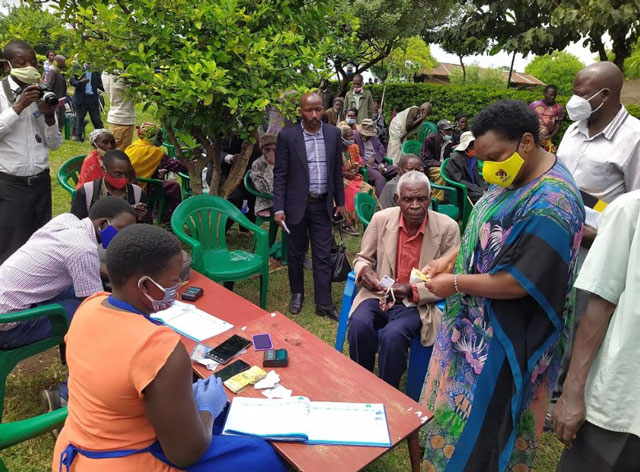
Kampala, Uganda | THE INDEPENDENT | Members of Parliament on the Public Accounts Committee have questioned the system being used to pay out funds to beneficiaries of the Social Assistance Grants for Empowerment programme.
The MPs chaired by Budadiri West MP Nandala Mafabi were on Wednesday meeting officials from the Ministry of Gender, Labour and Social Development led by the Permanent Secretary Aggrey Kibenge.
The Kabale Woman MP Ndamira Catherine noted that in her constituency, relatives of deceased beneficiaries continue to receive the stipend at the expense of other living beneficiaries.
She quizzed the commissioner in charge of the Expanding Social Protection Programme Steven Kasaija on what the ministry was doing in such scenarios. Kasaija stated that the family members are supposed to report to the parish chief in case of any death but his response only raised further doubt.
Ndamira wondered how they would do this when they could just keep on claiming the money.
The Bunyole West MP James Waluswaka also recounted an incident where the money for a deceased relative was withdrawn by an unknown person.
Kasaija told the MPs that the beneficiaries are meant to appoint an alternative recipient who is meant to collect money on their behalf and that the parish chiefs would keep checking on the elderly just in case they happen to pass on.
However, Nandala pointed out that this loophole was being exploited by the parish chiefs who connive with the alternative recipients and keep collecting the money without registering the death.
He directed the ministry to furnish the committee with a list of all beneficiaries which will be verified by parliament.
Nandala expressed worry that the bank officials carry cash on payday to give to beneficiaries. He asked the ministry officials to borrow from the Tanzanian model where money is sent to a mobile phone which requires a pin-code which the beneficiary enters into their phone to access the funds.
MPs were also dismayed that the ministry has not yet brought down the age of eligibility from those aged 80 years and above.
Mafabi also asked Kibenge to explain why the age of eligibility was increased from 65 years to 80 years leaving out so many would-be beneficiaries.
Nandala Mafabi argued that the number of elderly aged 80 and above was negligible and as such there was little impact from the programme.
Kibenge argued that the issue was down to the availability of resources and noted that with the age of eligibility at 80 years, the ministry needed 120.7 Billion Shillings for the current financial year but was only allocated 62.8 Billion Shillings.
Kibenge said projections have been made to determine what resources would be required to gradually bring down the age of eligibility from 80 years to 65 years.
However, Kasaija revealed that maintaining the age of eligibility at 80 years would bring in 358,000 beneficiaries requiring Shillings 142.4 Bn while dropping the age to 65 years would rope in 1.048 million beneficiaries requiring Shillings 373 Bn.
*****
URN
 The Independent Uganda: You get the Truth we Pay the Price
The Independent Uganda: You get the Truth we Pay the Price



